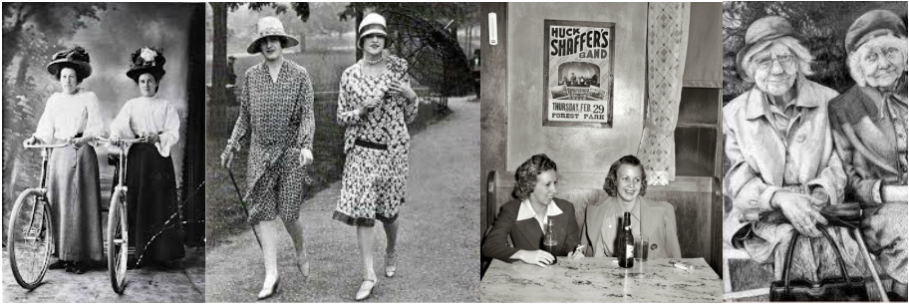- Home
- Site Index
- About Me
-
My Books
- Book List & Themes
- Strictly for Adults Novels >
-
Tales from Portlaw
>
- No Need to Look for Love
- 'The Love Quartet' >
-
The Priest's Calling Card
>
- Chapter One - The Irish Custom
- Chapter Two - Patrick Duffy's Family Background
- Chapter Three - Patrick Duffy Junior's Vocation to Priesthood
- Chapter Four - The first years of the priesthood
- Chapter Five - Father Patrick Duffy in Seattle
- Chapter Six - Father Patrick Duffy, Portlaw Priest
- Chapter Seven - Patrick Duffy Priest Power
- Chapter Eight - Patrick Duffy Groundless Gossip
- Chapter Nine - Monsignor Duffy of Portlaw
- Chapter Ten - The Portlaw Inheritance of Patrick Duffy
- Bigger and Better >
- The Oldest Woman in the World >
-
Sean and Sarah
>
- Chapter 1 - 'Return of the Prodigal Son'
- Chapter 2 - 'The early years of sweet innocence in Portlaw'
- Chapter 3 - 'The Separation'
- Chapter 4 - 'Separation and Betrayal'
- Chapter 5 - 'Portlaw to Manchester'
- Chapter 6 - 'Salford Choices'
- Chapter 7 - 'Life inside Prison'
- Chapter 8 - 'The Aylesbury Pilgrimage'
- Chapter 9 - Sean's interest in stone masonary'
- Chapter 10 - 'Sean's and Tony's Partnership'
- Chapter 11 - 'Return of the Prodigal Son'
- The Alternative Christmas Party >
-
The Life of Liam Lafferty
>
- Chapter One: ' Liam Lafferty is born'
- Chapter Two : 'The Baptism of Liam Lafferty'
- Chapter Three: 'The early years of Liam Lafferty'
- Chapter Four : Early Manhood
- Chapter Five : Ned's Secret Past
- Chapter Six : Courtship and Marriage
- Chapter Seven : Liam and Trish marry
- Chapter Eight : Farley meets Ned
- Chapter Nine : 'Ned comes clean to Farley'
- Chapter Ten : Tragedy hits the family
- Chapter Eleven : The future is brighter
-
The life and times of Joe Walsh
>
- Chapter One : 'The marriage of Margaret Mawd and Thomas Walsh’
- Chapter Two 'The birth of Joe Walsh'
- Chapter Three 'Marriage breakup and betrayal'
- Chapter Four: ' The Walsh family breakup'
- Chapter Five : ' Liverpool Lodgings'
- Chapter Six: ' Settled times are established and tested'
- Chapter Seven : 'Haworth is heaven is a place on earth'
- Chapter Eight: 'Coming out'
- Chapter Nine: Portlaw revenge
- Chapter Ten: ' The murder trial of Paddy Groggy'
- Chapter Eleven: 'New beginnings'
-
The Woman Who Hated Christmas
>
- Chapter One: 'The Christmas Enigma'
- Chapter Two: ' The Breakup of Beth's Family''
- Chapter Three: From Teenager to Adulthood.'
- Chapter Four: 'The Mills of West Yorkshire.'
- Chapter Five: 'Harrison Garner Showdown.'
- Chapter Six : 'The Christmas Dance'
- Chapter Seven : 'The ballot for Shop Steward.'
- Chapter Eight: ' Leaving the Mill'
- Chapter Ten: ' Beth buries her Ghosts'
- Chapter Eleven: Beth and Dermot start off married life in Galway.
- Chapter Twelve: The Twin Tragedy of Christmas, 1992.'
- Chapter Thirteen: 'The Christmas star returns'
- Chapter Fourteen: ' Beth's future in Portlaw'
-
The Last Dance
>
- Chapter One - ‘Nancy Swales becomes the Widow Swales’
- Chapter Two ‘The secret night life of Widow Swales’
- Chapter Three ‘Meeting Richard again’
- Chapter Four ‘Clancy’s Ballroom: March 1961’
- Chapter Five ‘The All Ireland Dancing Rounds’
- Chapter Six ‘James Mountford’
- Chapter Seven ‘The All Ireland Ballroom Latin American Dance Final.’
- Chapter Eight ‘The Final Arrives’
- Chapter Nine: 'Beth in Manchester.'
- 'Two Sisters' >
- Fourteen Days >
-
‘The Postman Always Knocks Twice’
>
- Author's Foreword
- Contents
- Chapter One
- Chapter Two
- Chapter Three
- Chapter Four
- Chapter Five
- Chapter Six
- Chapter Seven
- Chapter Eight
- Chapter Nine
- Chapter Ten
- Chapter Eleven
- Chapter Twelve
- Chapter Thirteen
- Chapter Fourteen
- Chapter Fifteen
- Chapter Sixteen
- Chapter Seventeen
- Chapter Eighteen
- Chapter Nineteen
- Chapter Twenty
- Chapter Twenty-One
- Chapter Twenty-Two
-
Celebrity Contacts
-
Thoughts and Musings
- Bereavement >
- Nature >
-
Bill's Personal Development
>
- What I'd like to be remembered for
- Second Chances
- Roots
- Holidays of Old
- Memorable Moments of Mine
- Cleckheaton Consecration
- Canadian Loves
- Mum's Wisdom
- 'Early life at my Grandparents'
- Family Holidays
- 'Mother /Child Bond'
- Childhood Pain
- The Death of Lady
- 'Soldiering On'
- 'Romantic Holidays'
- 'On the roof'
- Always wear clean shoes
- 'Family Tree'
- The importance of poise
- 'Growing up with grandparents'
- Love & Romance >
- Christian Thoughts, Acts and Words >
- My Wedding
- My Funeral
- Audio Downloads
- My Singing Videos
- Bill's Blog
- Contact Me
Time to clear the Fallen Leaves

The weather has been a wild Autumn day today. The wind has brushed the fallen leaves from the trees into natural piles beneath the hedge at the bottom of the garden. In the nearby woods of Hopton, where I walked in mid-morning, the wind had also created a carpet of fallen leaves upon the ground; multi-coloured in shade and softly cushioned beneath the walking feet. Looking at the leaves on the ground started me thinking about Etta Denton; a dear lady friend of mine who died over 10 years ago, aged 94 years and her life-long friend, Mary Milner, who died some six or seven years earlier than Etta.
I had met Etta as a young woman of 84 years whilst I'd been doing the gardening for a widowed neighbour called Mary Milner aged 78 years. During bthe next decade, Etta became like a substitute mum to me and I became the son she never had but had always wanted. Etta's life-long friend, Mary Milner was a widow and lived a few doors away from me. Mary could no longer manage her garden for herself through ill-health. Neither did she have the means to pay another to do it through an absence of money. For reasons I am unable to recall, she was one of those war widows who only received a reduced pension in later life. Etta Denton and Mary Milner had been the closest of friends since childhood years and in all the time I knew them , until Mary died, Etta would visit her home weekly. She would always visit with some home made present like a pot of jam.
I had met Etta as a young woman of 84 years whilst I'd been doing the gardening for a widowed neighbour called Mary Milner aged 78 years. During bthe next decade, Etta became like a substitute mum to me and I became the son she never had but had always wanted. Etta's life-long friend, Mary Milner was a widow and lived a few doors away from me. Mary could no longer manage her garden for herself through ill-health. Neither did she have the means to pay another to do it through an absence of money. For reasons I am unable to recall, she was one of those war widows who only received a reduced pension in later life. Etta Denton and Mary Milner had been the closest of friends since childhood years and in all the time I knew them , until Mary died, Etta would visit her home weekly. She would always visit with some home made present like a pot of jam.
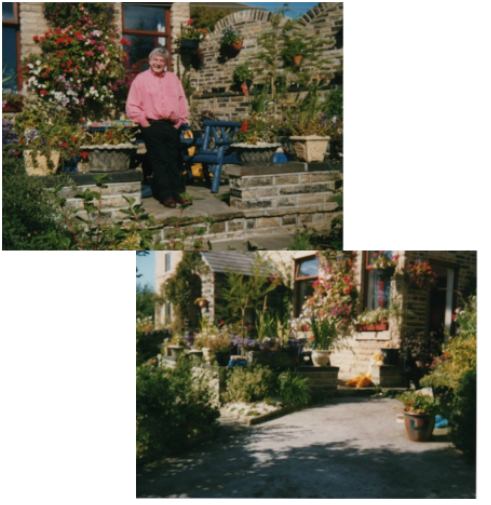
When I moved house in Mirfield and started living a few doors away from Mary, she was one of the few neighbours to deliberately go out of her way to welcome me and my family. Mary Milner had been very kind to my two growing children, William and Rebecca for many years before infirmity had confined her to the house. I still vividly recall the days when she would walk up to the Coop daily.
This walk would take her past the house where I lived with my wife and two young children. She never failed to pass some compliment about how nice my garden looked or favourably remark about a species of flower that I'd grown. She would always speak to the children through the large wrought-iron gate on her way to the Coop and they would always wait patiently by the gate for her return journey, like two horses waiting for their sugar-lump treat. The children never waited in vain, and Mary Milner never failed to give them some sweet treat on her way back to her old folk's bungalow, twenty yards farther down the lane.
This walk would take her past the house where I lived with my wife and two young children. She never failed to pass some compliment about how nice my garden looked or favourably remark about a species of flower that I'd grown. She would always speak to the children through the large wrought-iron gate on her way to the Coop and they would always wait patiently by the gate for her return journey, like two horses waiting for their sugar-lump treat. The children never waited in vain, and Mary Milner never failed to give them some sweet treat on her way back to her old folk's bungalow, twenty yards farther down the lane.
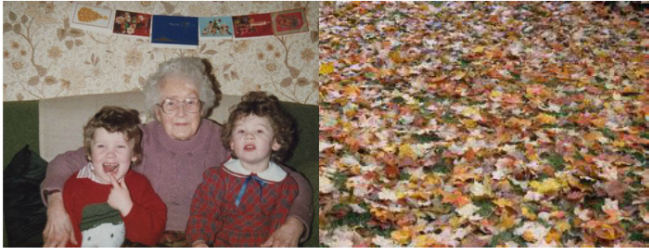
Since her days of confinement to the house had commenced, Mary had to depend upon the daily services of others. Her only son lived far away and so her total dependency fell to friends and neighbours upon whom she could rely. This essentially meant myself and her old friend, Miss Etta Denton.
Mary was a very proud woman who wouldn't allow anyone to cross the threshold of her front door unless she'd known them for at least ten years or they'd been vouched for by the local vicar as being decent and God Fearing. Consequently, meals on wheels or home help visitors were not welcome to her spotless bungalow. Naturally, when Mary Milner needed me, I gladly helped. It pleased me to have the opportunity to return the many kindnesses she had previously bestowed on me and my young family during earlier years. There was never a day when I didn't pop in to see her at the start and end of the day. My children would always accompany me during the evenings and she would love to read them a story as she sat them both on her knee. In the spring, summer and autumn seasons of the year, I would always tend to Mary's garden as well as my own. She hated to look out the window and see an untended garden, especially one with leaves blown across it.
Mary was a very proud woman who wouldn't allow anyone to cross the threshold of her front door unless she'd known them for at least ten years or they'd been vouched for by the local vicar as being decent and God Fearing. Consequently, meals on wheels or home help visitors were not welcome to her spotless bungalow. Naturally, when Mary Milner needed me, I gladly helped. It pleased me to have the opportunity to return the many kindnesses she had previously bestowed on me and my young family during earlier years. There was never a day when I didn't pop in to see her at the start and end of the day. My children would always accompany me during the evenings and she would love to read them a story as she sat them both on her knee. In the spring, summer and autumn seasons of the year, I would always tend to Mary's garden as well as my own. She hated to look out the window and see an untended garden, especially one with leaves blown across it.

Mary Milner and Etta Denton had been lifelong friends. Their families had always been closely connected and even their mothers had cycled together as young women on their Sunday outings. They went out together as young women whenever they could and kept in touch, even after Mary got married. When Mary became a widow in later life, Etta; despite being the older of the two women, was the one who did the weekly visit. They had remained best friends throughout. Indeed, the older they got and the more other friends of theirs died, the more they seemed to be each other's 'only friends', with the exception of myself.
Mary was a widow and Etta a lifelong spinster. Etta had never married and had lived alone since her lifelong bachelor brother had died 29 years earlier. I never learned of Etta's war-year sweetheart until the last month of Etta's life many years later. This was a 'love secret' shared only between herself and lifelong friend, Mary Milner.
When Etta was in her early twenties, she met and fell in love with a man called, 'Bill'. She feared her parents ever finding out about this relationship. Then, the 'Second World War' happened and her sweetheart was sent to the battlefields abroad. They planned to marry when he returned from the war. Knowing that her parents would strongly disapprove of this relationship; or indeed any relationship which threathened to remove Etta from the family home and the sevices of her bedridden mother, Etta never told them. All of her sweetheart's letters were delivered via the home of her friend, Mary Milner, as well as being read there and written by Etta and posted from there. Mary Milner effectively came to act as ' The Go between'. Bill was killed on the battlefields and because nobody except her friend, Mary, knew that he ever existed in Etta's life, poor Etta was left to mourn his loss in secret. With not being his relative or having no official connection to him, Etta learned of her sweetheart's death second hand. There was no grave to visit and no way of ever being able ever to publically declare their love for each other.
As Etta was the one who still possessed her good health and mobility; it was left to her to maintain weekly contact with her younger friend, Mary. I never knew either of the two women partake of alcohol apart from the one sweet sherry they would permit themselves to indulge in over the Christmas period. I frequently joked about them getting tipsy together during their earlier years and nowadays, during their weekly meeting. When Mary Milner eventually died, we all missed her; especially Etta, who had by this time become more dependent upon my daily contact with herself. My own mother had died a few years earlier than first meeting Etta, and without realising it, we each took on the roles of substitute mother and son. Etta was now effectively my mother and I was the son she'd never had.
Mary was a widow and Etta a lifelong spinster. Etta had never married and had lived alone since her lifelong bachelor brother had died 29 years earlier. I never learned of Etta's war-year sweetheart until the last month of Etta's life many years later. This was a 'love secret' shared only between herself and lifelong friend, Mary Milner.
When Etta was in her early twenties, she met and fell in love with a man called, 'Bill'. She feared her parents ever finding out about this relationship. Then, the 'Second World War' happened and her sweetheart was sent to the battlefields abroad. They planned to marry when he returned from the war. Knowing that her parents would strongly disapprove of this relationship; or indeed any relationship which threathened to remove Etta from the family home and the sevices of her bedridden mother, Etta never told them. All of her sweetheart's letters were delivered via the home of her friend, Mary Milner, as well as being read there and written by Etta and posted from there. Mary Milner effectively came to act as ' The Go between'. Bill was killed on the battlefields and because nobody except her friend, Mary, knew that he ever existed in Etta's life, poor Etta was left to mourn his loss in secret. With not being his relative or having no official connection to him, Etta learned of her sweetheart's death second hand. There was no grave to visit and no way of ever being able ever to publically declare their love for each other.
As Etta was the one who still possessed her good health and mobility; it was left to her to maintain weekly contact with her younger friend, Mary. I never knew either of the two women partake of alcohol apart from the one sweet sherry they would permit themselves to indulge in over the Christmas period. I frequently joked about them getting tipsy together during their earlier years and nowadays, during their weekly meeting. When Mary Milner eventually died, we all missed her; especially Etta, who had by this time become more dependent upon my daily contact with herself. My own mother had died a few years earlier than first meeting Etta, and without realising it, we each took on the roles of substitute mother and son. Etta was now effectively my mother and I was the son she'd never had.
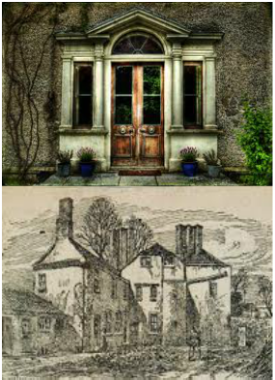
Etta was an old woman from a previous time. She was a cultural woman who loved to read and play her piano daily. She liked all things old and nothing new. It was not coincidental that she lived in one of the oldest dwellings in Mirfield called,'Gothic House' and did not believe in any form of modernisation, home improvement or 'Eat by dates' on food labels. Even her telephone was one that had been in existence for thirty years. Once upon a time, her garden had undoubtedly been a splendid feature of the house with its lawned area surrounded by old English Roses on one side and four Braeburn apple trees on the other. Now, however, it was an unkempt garden area where the grass had sadly overgrown, the roses had been left unpruned and the four neglected apple trees were in dire need of some tree surgery and root stock attention.
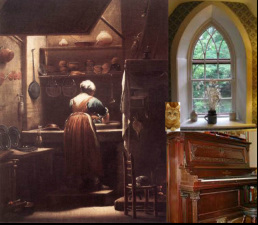
Etta had always loved her garden. During spring and summer, she would spend many of her hours outdoors when the weather was fine. If the weather wasn't good enough to go outdoors in her beloved garden she could be found playing her piano in her lounge that caught the afternoon sun or baking in her old fashioned scullery which had been left in its original state since the house had been built during the 19th century. She was one of the few people I knew who still baked her own bread.

The garden had once been her pride and joy to tend and maintain until she had found herself unable to bend down some years earlier. Since that date, the curvature of her spine had worsened yearly and she could no longer look straight ahead and generally had her eyes fixed permanently upon the ground. She politely asked me if I would possibly consider tidying her garden and quickly added, "Of course, I'll pay you for your services, Mr Forde." I agreed. After all, my mother had constantly told me when growing up as the oldest of seven, that looking after three children and keeping them maintained isn't any more difficult than looking after two, and it's only after having at least five children can a woman tell the difference of having an extra one to care for! I didn't suppose that gardens would be much different a responsibility to undertake than looking after snotty-nosed children, so I willingly agreed to undertake this additional duty.
The day after, I spent four hours doing Etta's garden and when I'd finished, she offered me money for my labour, but I politely declined. As I'd done her friend Mary's garden since her husband had died some 7 years earlier and had never taken a penny payment from Mary, there was simply no way I could take money from her oldest and dearest friend, Etta.
Also, I could sense that there was something special between me and this woman who was then in her mid 80s. I didn't know what, but I knew that we were meant to meet and become part of each other's life.
The day after, I spent four hours doing Etta's garden and when I'd finished, she offered me money for my labour, but I politely declined. As I'd done her friend Mary's garden since her husband had died some 7 years earlier and had never taken a penny payment from Mary, there was simply no way I could take money from her oldest and dearest friend, Etta.
Also, I could sense that there was something special between me and this woman who was then in her mid 80s. I didn't know what, but I knew that we were meant to meet and become part of each other's life.
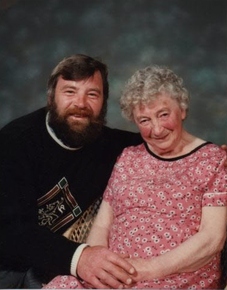
I had retired early from my work as a Probation Officer at the age of 52 years with bad rhuematoid and osteoarthritis. I could do some work slowly, but with less mobility and agility than most men. This gave me time to help out Etta and keep an eye open for her. From that day forth, every morning when I walked back from the newspaper shop, I took the long way home and passed Etta's house. I would call in and check she was okay. She would always give me a cup of tea and tell me part of her earlier life history which I found fascinating.
By the time of her death some ten years later, she had effectively adopted me as the son she never had and had always wanted, and regarded my growing children as part of her own family. My own mother had died shortly prior to me meeting Etta for the first time, and although she came to regard me as a son, it later dawned on me that she had filled an emotional void that the loss of my real mother had created and had effectively become my 'substitute mum,' filling my needs. She had also acted as substitute grandmother to my son William and daughter Rebecca whose paternal grandmother was deceased and who rarely saw their materenal grandmother.
A few days before her death, Etta told me a secret that she had told nobody else except her old friend Mary Milner many years earlier, about her wartime sweetheart.
It suddenly became plainer why me and Etta had identified with each other so strongly after we met; I was still grieving for my mother's death and she had always been grieving for her soldier sweetheart, my name sake. I also represented the child she never had. I felt so moved by her story that many years after her death, I wrote a poem of their love entitled, 'Arthur and Guinevere' which is on my web site and which is speedily accessed by http://www.fordefables.co.uk/arthur--guinevere.html
By the time of her death some ten years later, she had effectively adopted me as the son she never had and had always wanted, and regarded my growing children as part of her own family. My own mother had died shortly prior to me meeting Etta for the first time, and although she came to regard me as a son, it later dawned on me that she had filled an emotional void that the loss of my real mother had created and had effectively become my 'substitute mum,' filling my needs. She had also acted as substitute grandmother to my son William and daughter Rebecca whose paternal grandmother was deceased and who rarely saw their materenal grandmother.
A few days before her death, Etta told me a secret that she had told nobody else except her old friend Mary Milner many years earlier, about her wartime sweetheart.
It suddenly became plainer why me and Etta had identified with each other so strongly after we met; I was still grieving for my mother's death and she had always been grieving for her soldier sweetheart, my name sake. I also represented the child she never had. I felt so moved by her story that many years after her death, I wrote a poem of their love entitled, 'Arthur and Guinevere' which is on my web site and which is speedily accessed by http://www.fordefables.co.uk/arthur--guinevere.html
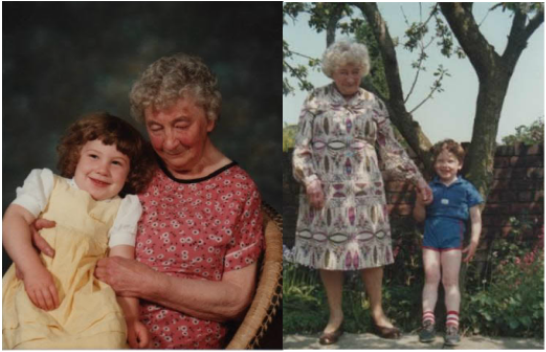
For the remaining years of her life Etta and I became as close as two people could ever be. Prior to her death, Etta contracted an illness and over the next three weeks as her health failed and she began to grow noticeably weaker, I slept on her sofa down stairs every night and tended to her needs throughout the day hours. She feared having to go into hospital and wanted to die in her own surroundings where she had happily lived for some forty years or more since the death of her parents and brother. It pleased me enormously that both of my children asked to visit Etta a number of times during her final few weeks of life, and I know that it pleased her also. I have never tried to shield my children from the reality of life and death.
One week prior to her death, Etta asked if I would go to her Georgian book cabinet in the lounge and bring her a specificic book. I brought the book upstairs to her bedroom. Being too weak to open its pages, she asked me to open the book at a certain page and extract the pressed flower which had rested there since her sweetheart Bill had died. She smiled in fond memory as she held the pressed flower to her heart and lips. After she died, because I was arranging her funeral, I ensured that the pressed flower was placed inside her coffin.
On the night of Etta’s death, I was sleeping in her lounge downstairs. I awoke suddenly at around 4.00 am and I knew that she had passed away, even before I'd checked her out. I had dreamed of her death that night, but not in any sad or macabre manner. It was weird. I dreamed that she had been asleep in her bed for her last night on earth and as the spirit of her soul left her body, the curvature of her spine had straightened, removing all deformity from her new self, and making her look the woman she would have looked, had her soldier sweetheart returned from the war and they'd got married.
I dreamed that the younger looking Etta's soul left this earth and ascended the staircase towards Heaven, progressing through the galaxy and a vortex of clouds and welcoming doves that had been sent to guide her on the final part of her journey. As Etta approached her eternal reward, seeing its familiarity she starts to run towards it. She eventually arrives in Heaven to find that it mirrors her own Garden Of Eden; the garden of 'Gothic House' where she spent so many happy years of her life. The dream ends with her reunification with her soldier sweetheart, Bill, whom I only found out shared the same name as myself the week before Etta died. I spent the following three hours in tears; having lost a substitute mother I'd come to love dearly.
On the night of Etta’s death, I was sleeping in her lounge downstairs. I awoke suddenly at around 4.00 am and I knew that she had passed away, even before I'd checked her out. I had dreamed of her death that night, but not in any sad or macabre manner. It was weird. I dreamed that she had been asleep in her bed for her last night on earth and as the spirit of her soul left her body, the curvature of her spine had straightened, removing all deformity from her new self, and making her look the woman she would have looked, had her soldier sweetheart returned from the war and they'd got married.
I dreamed that the younger looking Etta's soul left this earth and ascended the staircase towards Heaven, progressing through the galaxy and a vortex of clouds and welcoming doves that had been sent to guide her on the final part of her journey. As Etta approached her eternal reward, seeing its familiarity she starts to run towards it. She eventually arrives in Heaven to find that it mirrors her own Garden Of Eden; the garden of 'Gothic House' where she spent so many happy years of her life. The dream ends with her reunification with her soldier sweetheart, Bill, whom I only found out shared the same name as myself the week before Etta died. I spent the following three hours in tears; having lost a substitute mother I'd come to love dearly.
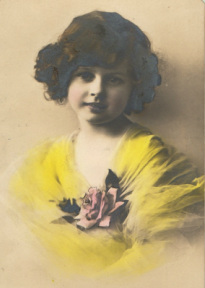
Some months after her death, it fell upon me to sell her house which she had kindly willed to me. Although the old property was falling down and was badly in need of improvement to once again make it habitable for the present-day house market, 'Gothic House' had nevertheless been Etta's happy home for over forty years. I had been looking through one of her scrap books and had come across a photograph of a beautiful looking girl. The photograph was one of Etta as a young girl with no hint of curvature and with a body-line of perfect formation. This image of her youthful beauty instantly reminded me that her presently dishevelled garden had also once been a beautiful sight to behold during its earlier years of flower. I retain this photo of Etta today which I subsequently framed and placed in prime position in my home.
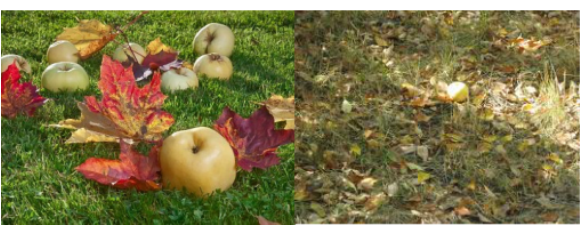
During the following two months, day after day, I called up to Etta's house, and for nearly two months after her death, I couldn't bring myself to tend to her garden as I'd now done for ten years previously. I was grieving her loss far more than I could have ever anticipated. The apple trees had been left unharvested and the apples began to fall and cover the overgrown grass of the uncut lawn beneath. Then, the autumn leaves began to fall from the many garden trees, covering the remaining grass surface.
The day eventually came when the time arrived to emotionally 'let my substitute mum go.' I’d buried her ashes in accordance with Etta’s instructions, but I’d not yet buried my grief. I cleared the fallen apples from the lawn, along with some shiny conkers that had fallen also and the mountain of leaves that had blanketed the ground beneath. I found that this symbolic act enabled me to get on with my life once more. The untended garden of my dear friend and mother substitute, Etta, had simply been my way of falsely hanging on to her memory and of ‘not letting go.' She needed to leave me so that she could meet up with her other Bill up above.
The day eventually came when the time arrived to emotionally 'let my substitute mum go.' I’d buried her ashes in accordance with Etta’s instructions, but I’d not yet buried my grief. I cleared the fallen apples from the lawn, along with some shiny conkers that had fallen also and the mountain of leaves that had blanketed the ground beneath. I found that this symbolic act enabled me to get on with my life once more. The untended garden of my dear friend and mother substitute, Etta, had simply been my way of falsely hanging on to her memory and of ‘not letting go.' She needed to leave me so that she could meet up with her other Bill up above.

Whenever I see an untended lawn covered in apples and leaves now, my mind automatically goes to Etta. It may be that the time has also arrived for you to clear away the fallen memories of your past that you may not have ‘let go of.’ Only when you have done this will you be more ready and able to move on with your life. Rest in peace, Etta. Love from your adopted son, Bill x.
Copyright William Forde March, 2012. (Amended, April 2018).
Copyright William Forde March, 2012. (Amended, April 2018).
